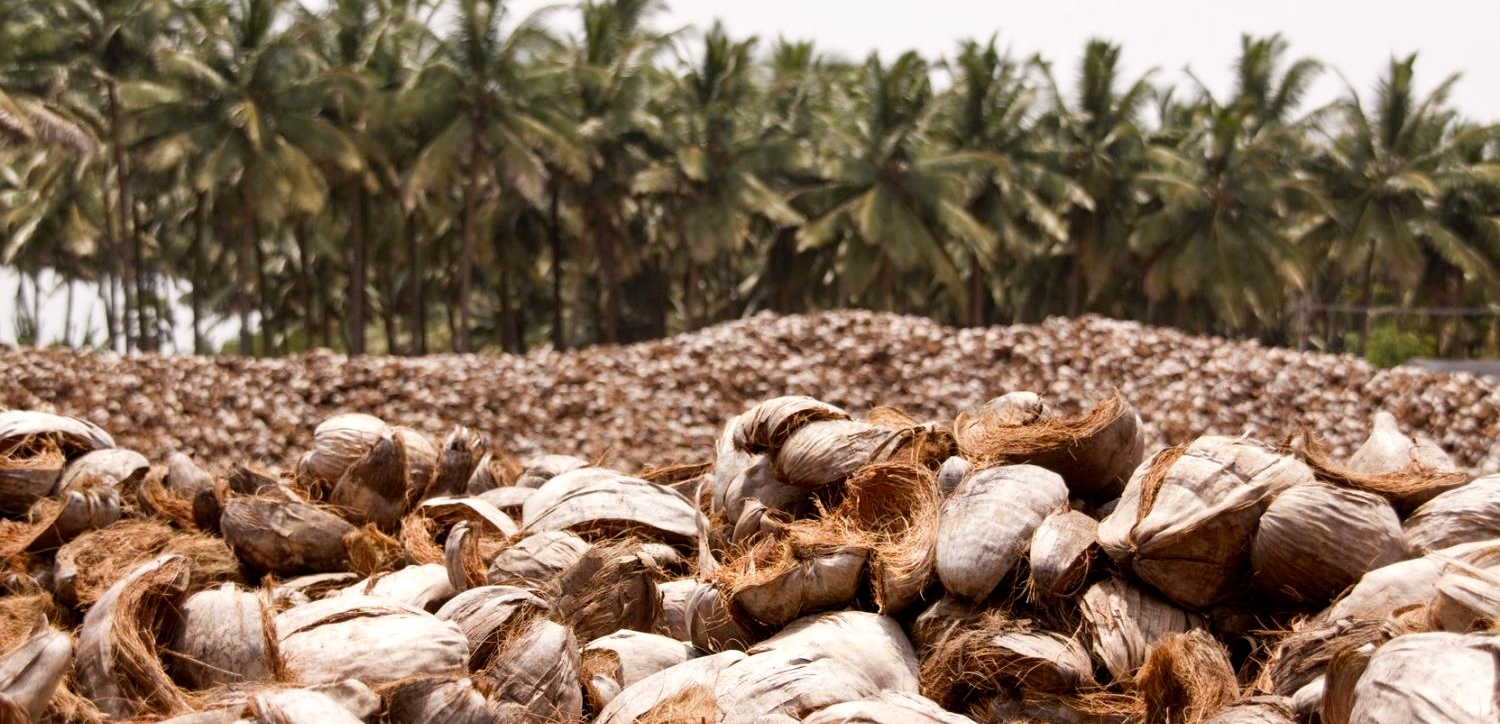With 12 factories and some 800 Indians employed, Dutch Plantin is one of the most experienced Dutch SMEs in India. Director Jos van Doren: "Our international sales office is also there, because Indians can negotiate much better than we can."
Coconut waste is the raw material for Dutch Plantin in Coimbatore (Photo: Dutch Plantin)
Coincidence
Jos van Doren is an India veteran. Van Doren first visited India in 1988 and from 1994 pioneered the production of coco peat in the country. Coconut dust is extracted from the shell of coconuts and is used as a nutrient medium for horticulture. "Coir dust soon proved to be a good, organic alternative to rockwool," he said. Initially, Van Doren imported coco peat from producers in Sri Lanka, but that proved to be quite difficult. Stupidly, he came into contact with a Dutch company that had children's clothing made in South India: Oilily. "Their factories were in Tamil Nadu among the coconut palms. They introduced us to a good local partner with whom we got to work."
Perseverance
Setting up the first factory took a lot of blood, sweat and tears. "Purchasing land took a really long time, as did importing machinery and arranging electricity. Training personnel was also a hefty task. You have to have perseverance to succeed here." But once things are up and running, they go fast. Dutch Plantin has as many as twelve production sites around the city of Coimbatore where its headquarters are located. "By now we are more of an Indian company than a Dutch company."
Dutch Plantin arranges transportation for their employees (photo: Dutch Plantin)
Firm negotiation
Dutch Plantin has long since ceased to see India merely as a low-cost production location. "We export 3,500 large sea containers a year from India to more than eighty countries. Our sales office is also in India. That doesn't hurt us, because Indians are better negotiators than we Dutch are. In the Netherlands we prefer to work with partnerships and make open calculations. Indians are much tougher: they are more interested in win, rather than win-win."
Director Jos van Doren with his Indian colleague in Coimbatore (photo: Dutch Plantin)
One of Dutch Plantin's production sites in Coimbatore (Photo: Dutch Plantin)
Rapid growth
Over the next few years, Van Doren hopes to continue growing rapidly. "Our market is growing, so that means we need to establish more factories as soon as possible. We now know how to import machinery, arrange electricity and train staff, but acquiring land remains a slow and laborious process." Is renting land not an option? "Actually no. As soon as the landlord notices that you are successful, the rent shoots up. You have to make sure you don't become dependent on Indians."
What 5 tips does Jos van Doren give entrepreneurs who want to go to India?
1. Start small. Go step by step.
2. Let Indians negotiate (with Indians).
3. Trust is good, control is better. Have an outside Indian firm audit your accounts.
4. Be humble. Don't step up too much.
5. Stay close to yourself.
Producing in India is becoming increasingly attractive. Want to know more? Get in touch with IndiaConnected!




